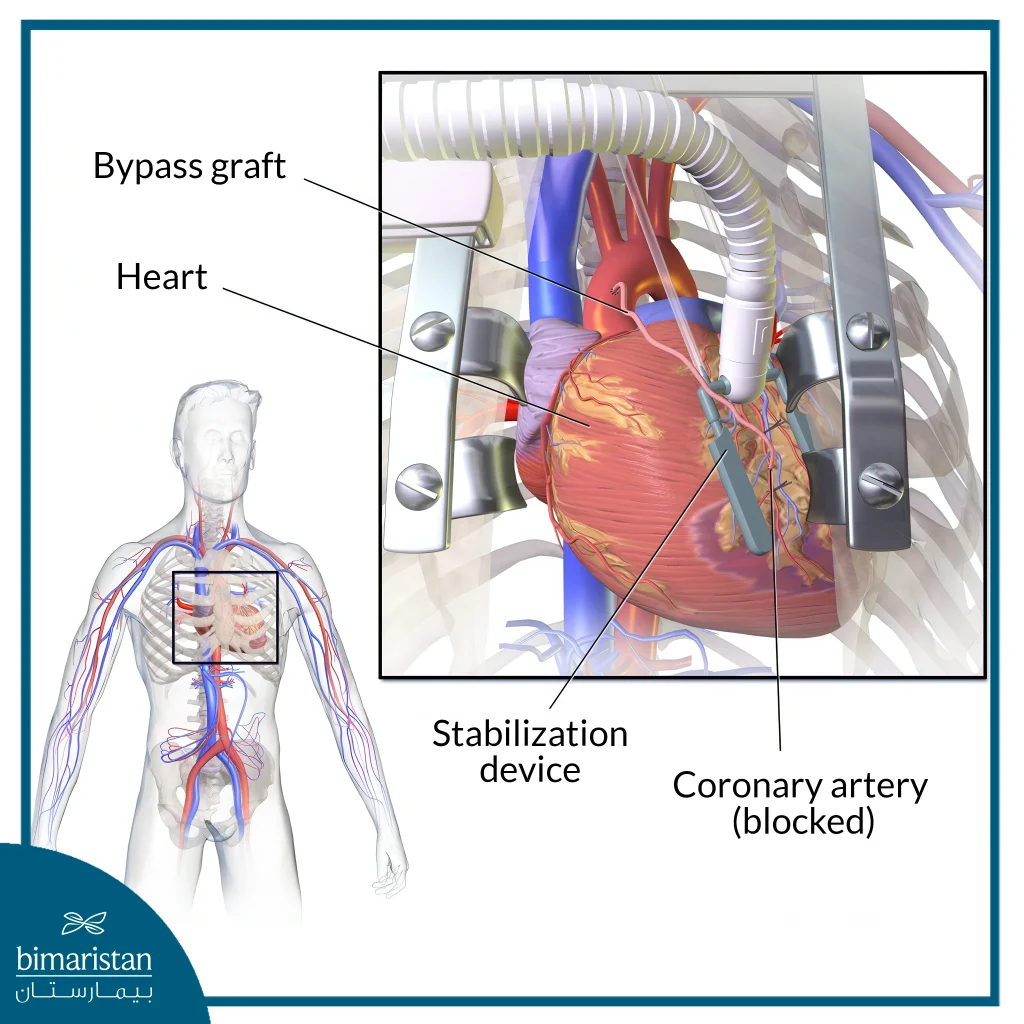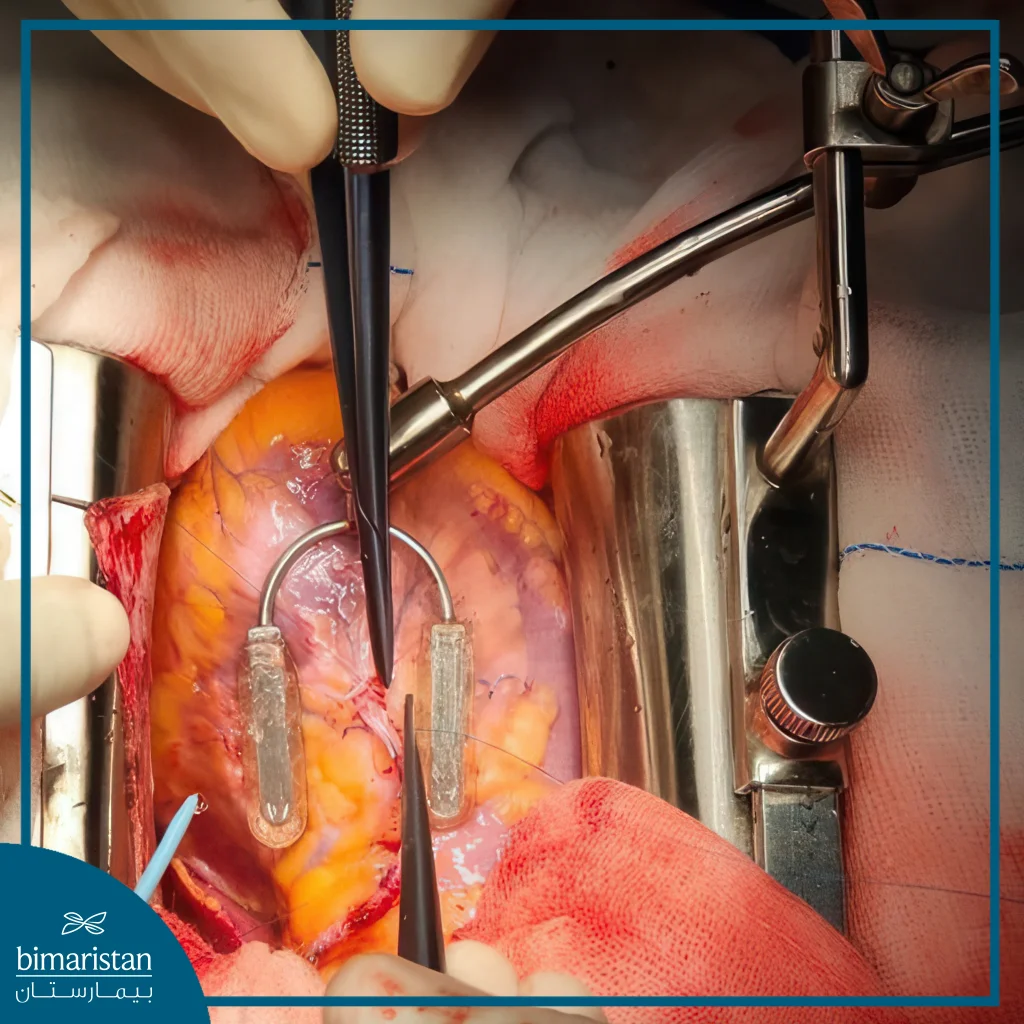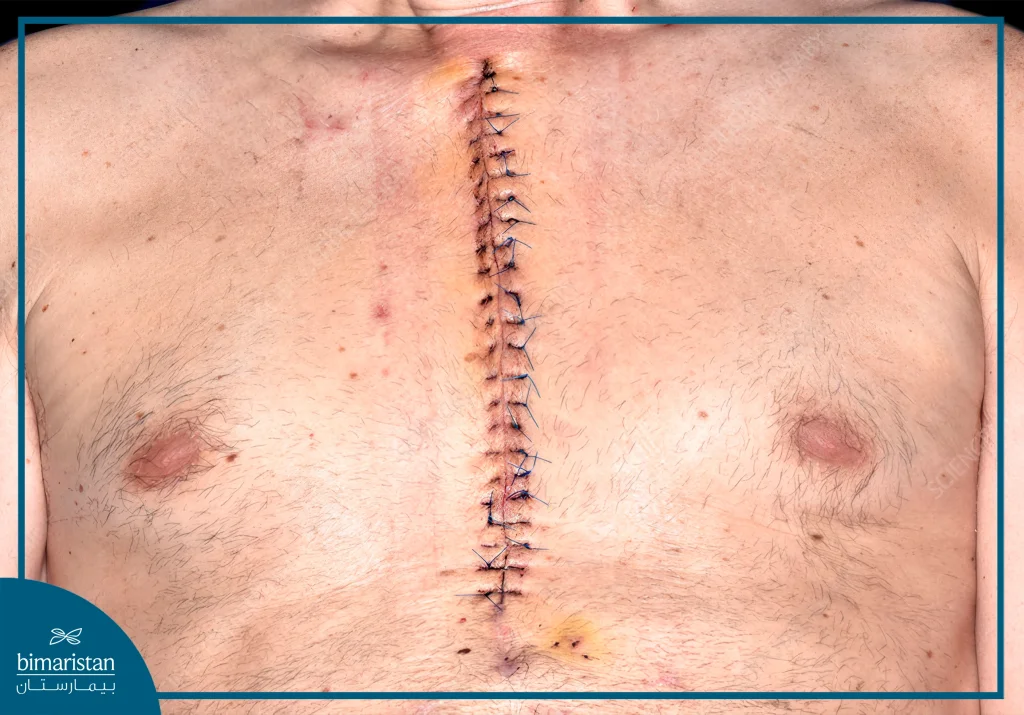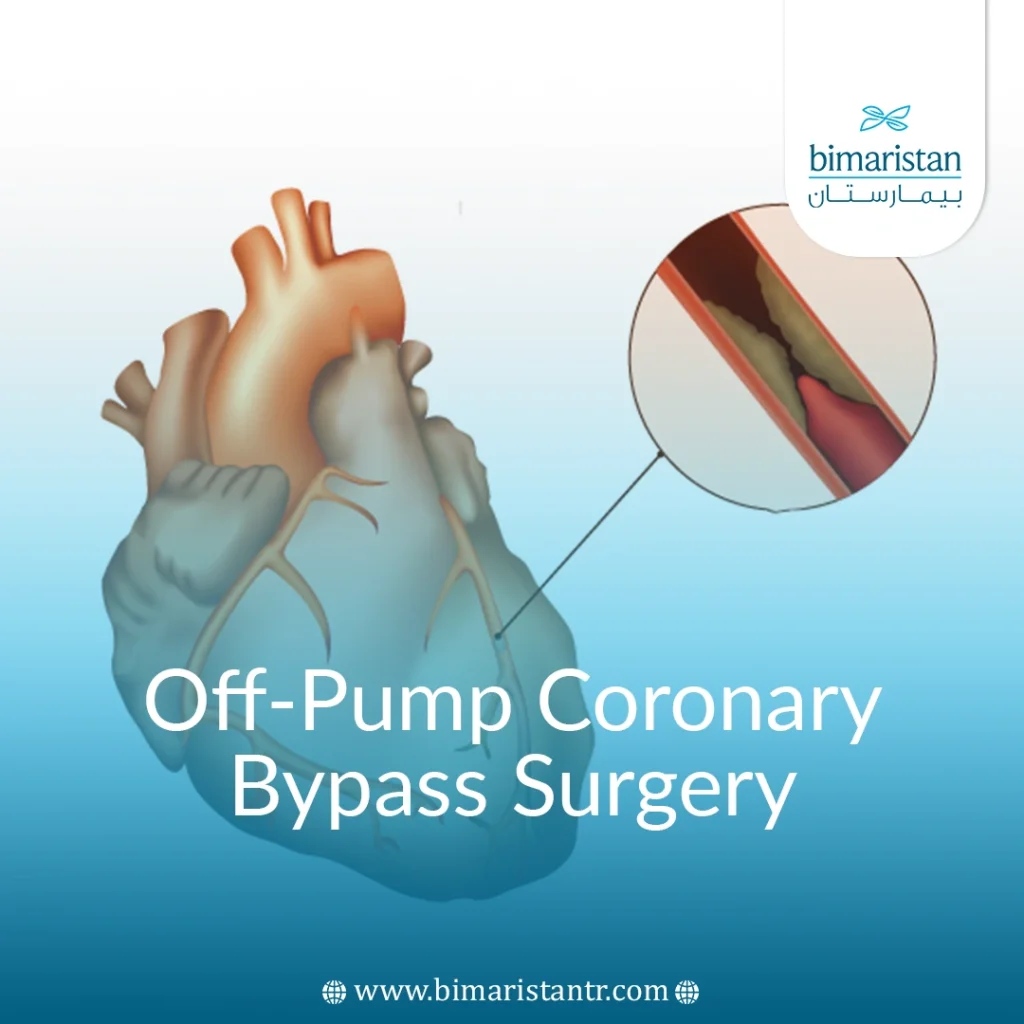Off-pump coronary bypass surgery is one of the most significant surgical approaches for treating blocked coronary arteries that supply the heart with essential blood and oxygen. The goal of this procedure is to restore natural blood flow to the heart muscle, which helps alleviate severe symptoms like chest pain (angina) and prevents potentially life-threatening complications such as heart attacks. With the evolution of surgical technologies, innovative techniques have emerged that enable this operation to be performed with less invasiveness and greater safety. Chief among these techniques is off-pump coronary bypass surgery.
What is off-pump coronary bypass surgery?
Off-pump coronary artery bypass surgery (OPCAB), also known as beating-heart surgery, is a type of coronary bypass procedure in which blockages in the coronary arteries are bypassed without the use of a heart-lung machine. In this technique, the heart continues to beat and pump blood throughout the operation, while the surgeon stabilizes a small portion of the heart to perform the grafting with precision.
The surgeon typically uses an artery or vein from another part of the body as a graft to bypass the blocked section of the coronary artery, thereby restoring normal blood flow to the heart muscle. This procedure may be planned for chronic conditions or performed urgently in cases of sudden blockage that threatens the patient’s life.
This surgery is commonly performed through a sternotomy, but some advanced medical centers have started using less invasive techniques through smaller incisions between the ribs to reduce pain and accelerate recovery. This approach relies less on machines and aligns more closely with the body’s natural physiology, helping patients avoid some of the potential risks associated with the heart-lung machine.

Comparison between on-pump and off-pump coronary bypass surgery
Coronary bypass surgery varies depending on the technique used. Some procedures are performed with the aid of a heart-lung machine, while others are performed on a beating heart without the use of a pump. The following table highlights the key differences between these two approaches.
| Aspect | On-pump CABG (With Heart-Lung Machine) | Off-pump Coronary Bypass Surgery (OPCAB) |
|---|---|---|
| Operating Method | Temporarily stops the heart and uses a heart-lung machine to circulate blood and oxygen | The heart continues beating and pumping blood; a portion is stabilized for grafting |
| Surgical Conditions | Still heart provides a stable and easily maneuverable field | A beating heart requires special stabilizing tools and higher surgical precision |
| Recovery Time | Relatively longer due to the effects of the pump | Often faster and less painful in some cases |
| Prevalence | More common and widely used | Used in selected cases at specialized centers |
When is off-pump coronary bypass surgery recommended?
Coronary artery disease (CAD) is the most common reason for requiring coronary bypass surgery. In mild cases, the condition may be managed through lifestyle changes or medications, and sometimes with non-surgical procedures such as angioplasty and stent placement. However, in cases of severe blockage or when arteries do not respond to these treatments, surgical intervention becomes necessary to restore blood flow to the heart.
Once the decision for bypass surgery is made, the physician determines whether the procedure will be performed with or without the use of a heart-lung machine. Some patients may benefit more from off-pump coronary bypass surgery (OPCAB), especially those suffering from:
- Advanced aortic calcification
- Chronic kidney disease
- Chronic lung disease
In such cases, using the beating-heart technique may reduce certain risks associated with the pump, such as postoperative inflammation or arrhythmias, provided the procedure is performed by a surgeon experienced in this method.
Preparation before off-pump coronary bypass surgery
Before undergoing off-pump coronary artery bypass surgery (OPCAB), the medical team provides the patient with detailed instructions to help prepare for the procedure and reduce potential risks. Patients are usually advised to stop smoking to minimize pulmonary and cardiac complications. They may also be instructed to discontinue certain medications that increase the risk of bleeding, such as blood thinners like warfarin and aspirin, according to the physician’s guidance.
It is also important to refrain from eating or drinking after midnight on the night before surgery. Patients must inform the medical team of any allergies to medications or substances such as iodine or latex. They should provide a complete list of all medications and supplements they are taking, prescribed, over-the-counter, or herbal. Female patients must notify the doctor if they are pregnant or suspect they might be. Additionally, the team should be informed of any implanted devices, such as pacemakers or other cardiac implants.
Before the procedure, the doctor may ask for a series of tests to ensure the patient is ready for surgery, typically including:
- Blood tests to assess general health and clotting function
- Chest X-ray
- Electrocardiogram (ECG) to evaluate heart rhythm
- Echocardiogram to examine heart structure and pumping efficiency
- Cardiac stress test to assess blood flow to the heart
Steps of off-pump coronary bypass surgery
Off-pump coronary bypass surgery (OPCAB) is performed in a specialized operating room with a full medical team, including the surgeon, anesthesiologists, nurses, and technicians. The procedure begins with general anesthesia to ensure the patient remains deeply asleep throughout. The chest is then sterilized and, if necessary, shaved in the preparation phase.
The operation typically lasts between three to six hours, depending on the number of arteries requiring bypass and the patient’s overall health. The chest is usually opened via a sternotomy, though some medical centers may opt for smaller intercostal incisions when using minimally invasive techniques. A blood vessel is taken from the chest or leg to be used as a graft to bypass the blocked artery. It is often an artery from inside the chest because it has proven highly effective in staying open for a longer period.
During the procedure, the heart remains in its natural beating state. The surgeon uses specialized tools to stabilize a small portion of the heart, allowing precise grafting without interrupting circulation. The graft is connected from the aorta to a point beyond the blockage in the coronary artery, creating an alternate route for blood to reach the heart muscle.
Once the grafts are secured, the sternum is returned to its original position and closed with small metal wires. The skin is then sutured or stapled. The patient is transferred to the intensive care unit to gradually awaken from anesthesia, where close monitoring of heart and respiratory function begins.

Recovery after off-pump coronary bypass surgery
In the Hospital
After completing off-pump coronary bypass surgery, the patient is transferred to the recovery room or intensive care unit for close monitoring. Waking up from anesthesia usually takes a few hours, and the patient may initially experience confusion or disorientation. At this stage, they are connected to devices that track vital signs such as heart rate, blood pressure, and respiration.
A breathing tube may be inserted into the throat to assist with ventilation and is typically removed within 24 hours. A chest tube may also be placed to drain excess fluids. The patient often experiences some pain or discomfort, which is managed with pain-relieving medications. During the first two days, the patient is encouraged to sit up and perform light movements, along with breathing exercises to clear the lungs and prevent fluid buildup. Once the breathing tube is removed, the patient can begin consuming liquids, followed by food, in a gradual manner based on tolerance. Hospital stay usually lasts several days, depending on the individual’s condition.

At home
After returning home, the patient requires a recovery period that may last several weeks. Full recovery typically occurs within 6 to 12 weeks, depending on the patient’s overall health and the success of the procedure. It’s important to have someone accompany and assist the patient with daily activities, as fatigue is common in the early stages. During this time, it is advisable to avoid driving and lifting heavy objects until cleared to do so by the physician.
Medical instructions regarding medications, diet, physical activity, and wound care must be followed precisely. Stitches or staples are usually removed 7 to 10 days after surgery during the first follow-up visit. The doctor may also recommend a cardiac rehabilitation program, starting with simple steps, such as walking inside the hospital, and gradually progressing to regular exercise and a healthy diet. This program helps restore activity levels and reduces the risk of future cardiac issues.
Advantages and disadvantages of off-pump coronary bypass surgery
Off-pump coronary bypass surgery (OPCAB) offers many benefits that make it an appealing option for many patients. However, like any surgical procedure, it also carries certain risks and challenges that must be considered. Below is an overview of the main advantages and potential drawbacks of this technique.
Advantages
The primary advantage of off-pump coronary bypass surgery lies in its ability to preserve heart function during the procedure. Keeping the heart beating helps maintain natural blood flow to other organs, reducing the risk of complications associated with the heart-lung machine.
Studies have shown that this technique may improve survival rates, especially in high-risk patients such as those with advanced vascular disease, chronic lung conditions, or liver and kidney disorders. Off-pump coronary bypass surgery may also lead to faster recovery and shorter hospital stays, allowing patients to return to everyday life sooner. Another important benefit is the reduced risk of neurological complications such as stroke or memory issues compared to traditional on-pump surgery. This makes OPCAB a favorable option for patients with complex health conditions.
Disadvantages
Despite its many benefits, off-pump coronary bypass surgery is not without risks. Like any major surgery, it may result in bleeding, impaired blood flow, or clot formation that could lead to a heart attack or stroke.
The complexity of the procedure can be challenging, as OPCAB requires high surgical skill to stabilize the heart during the operation. This may make it difficult to access blocked arteries or perform precise grafting. Some studies suggest that OPCAB may increase the likelihood of needing additional bypass procedures in the future.
Other drawbacks include anesthesia-related risks and the potential for postoperative arrhythmias such as atrial fibrillation. While OPCAB offers significant advantages, it may not be suitable for all patients. Physicians must carefully select candidates based on overall health and the complexity of arterial blockages.
Off-pump coronary bypass surgery presents a valuable treatment option for a wide range of patients, delivering advantages that minimize the complications linked to the heart-lung machine and promote faster recovery. While this technique offers notable benefits, it also involves specific risks that should be carefully reviewed with the treating physician. By adhering closely to medical guidance before and after the procedure, patients can anticipate meaningful improvements in both their cardiovascular health and overall quality of life.
Sources:
- Lawton, J. S. (2012). Off-pump coronary artery bypass grafting. Missouri Medicine, 109(4), 277–280.
- Johns Hopkins Medicine. (n.d.). Off‑pump coronary artery bypass surgery.

